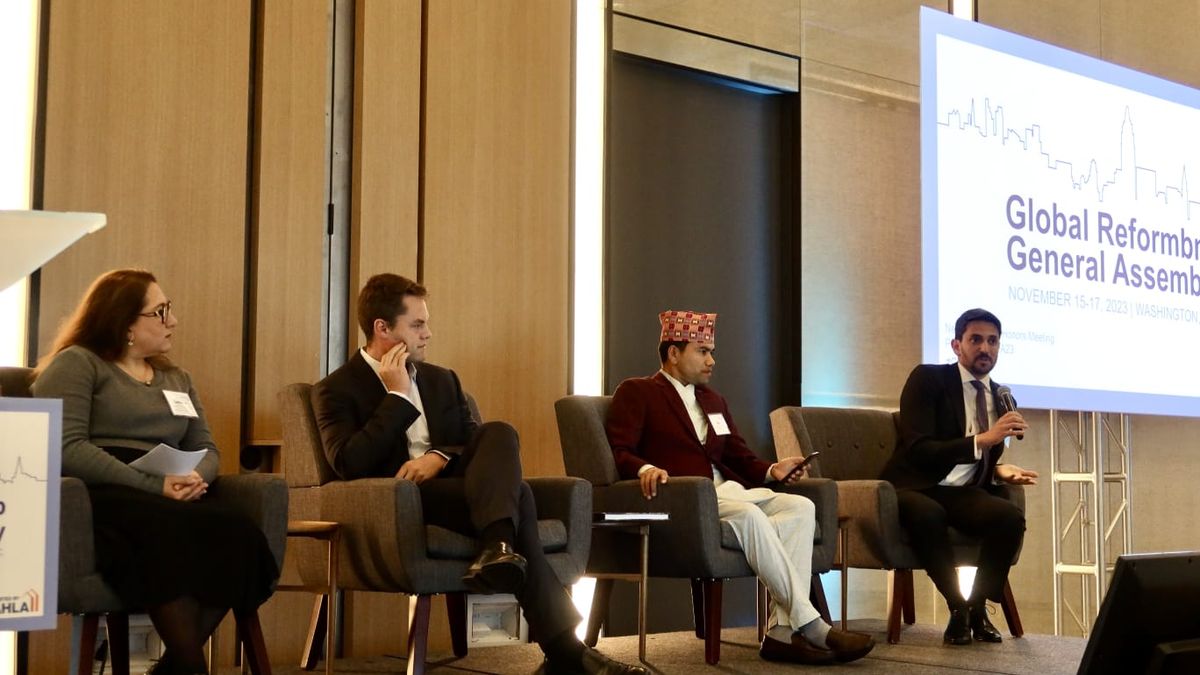Between November 15 and 17, the Annual Assembly of Global Reform was held in Washington, an entity that brings together hotel associations from around the world. Its first actions focused on the regulation of ATTs (temporary tourist accommodation) and now the conflicts of digital distribution are addressed.
Argentina was represented at this meeting by Roberto Amengual, member of the Executive Committee of Global Reform and of the Board of Directors of the AHT (Association of Tourism Hotels of the Argentine Republic) and Gabriela Akrabián, authority of the Chamber of Hotels of the AHRCC ( Association of Hotels, Restaurants, Confectioneries and Cafes).
Although the concern of many destinations around the world continues to be the issue of ATT regulation, the situation with respect to Argentina is very different. With daily fines for marketing unregistered property ranging from $50,000 (for platforms) to $100,000 (for owners), ATT’s offering is rapidly becoming formalized in the rest of the world.
New York is the clear example that, when they must comply with the same security and tax measures as any other establishment that hosts people, Temporary Rentals disappear, because it is a tedious and expensive process that makes the business much less attractive.
This also had an impact on hotel investors who, upon observing that their investments were once again having the expected return, decided to begin requesting new permits to develop more formal hotels, which generate registered employment and help the sustainable and economic development of the city and of destiny.
Gabriela Ferrucci, President of the AHT, highlights that “in Argentina, the laws exist. However, there is no political will to apply them, and the numbers prove it. According to a study carried out by the AHT, the supply of Temporary Rentals has doubled in the last 5 years, while that of formal hotels has barely remained stable (in terms of number of establishments).”
“This growth in activity is carried out within the framework of illegality, and it is an illegality without consequences,” emphasizes Ferrucci.
The regulation of ATTs and conflicts in digital distribution will mark 2024 in the tourism industry1.jpeg
From the Chamber of Hotels that makes up the AHRCC, its vice president Gabriela Akrabián He stated that “the apartments for temporary rent in the City of Buenos Aires have a registry and regulations to which they should register and under which they should operate, for the safety and tranquility of all parties involved.” And he added: ”The chambers and hotel associations do not intend to eliminate the offer of temporary rentals from the market but rather, as part of the tourism sector, they perform on equal terms and assume all the responsibilities that the activity entails to guarantee a safe service to the guests”.
In the City of Buenos Aires, only 2% of the ATTs are registered, in Mendoza the registrations do not exceed 5% of the offer, in Bariloche 18%, and in Iguazú 0%. Salta has 51% of registrations and Ushuaia, with 29%.
¨The development of this activity within the framework of absolute illegality and without any control (or intention of control) by state entities, is what has encouraged the occurrence of tragedies in our country, in which entire families die from lack of security measures. Other scourges such as human trafficking, arms trafficking, and even terrorist attacks have occurred in the world thanks to the protection and anonymity provided by the mechanism of temporary rentals under the absolute lack of government control,” explains the president of the AHT.
A case study in the world is that of the Government of the City of Buenos Aires, which allowed the most exponential development of ATT in Argentina, and one of the highest growth rates of illegality in the world. The lack of control has contributed, among other issues, to the fact that today there are only 1,000 traditional rental units on the market.
Digital distribution and scams without those responsible
At a global level, digital distribution gives rise to new and profound concerns in the formal tourism sector, which generates employment. ¨Virtual scams are becoming more frequent every day, the platforms are not responsible and consumers are the main victims: Bariloche, for example, registered multiple cases of properties published and prepaid by consumers who, upon arriving at the destination, found themselves with that were fictitious. This modality has evolved towards new types of scams around the world, explains Ferrucci.
Will we be able to move forward together with the rest of the world in facing new challenges? Or will we remain accumulating problems in a framework of absolute illegality, in which formal businesses are becoming less and less? These are the questions that will mark 2024 for the tourism industry in Argentina.
Source: Ambito
I am an author and journalist who has worked in the entertainment industry for over a decade. I currently work as a news editor at a major news website, and my focus is on covering the latest trends in entertainment. I also write occasional pieces for other outlets, and have authored two books about the entertainment industry.




